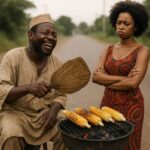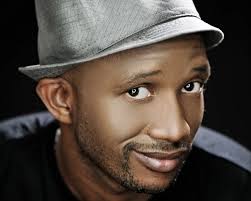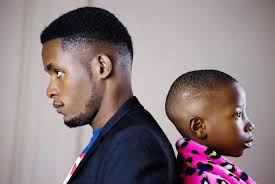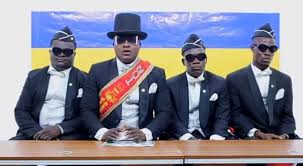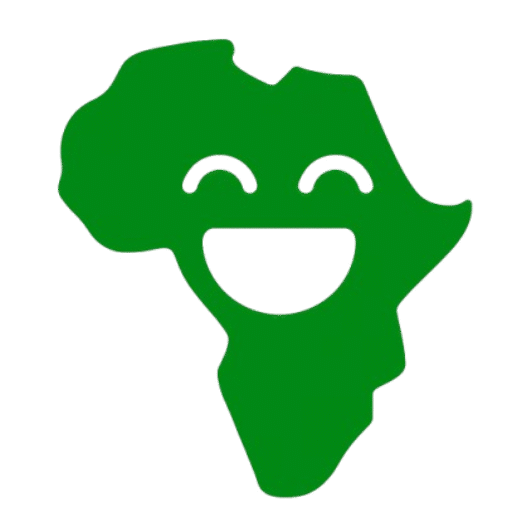David Kau was born on 18 April 1978 in Maokeng (near Kroonstad), Free State, South Africa. His upbringing was modest and largely private: while the general locale of his early life is public, details about his parents or siblings remain largely unreported.
He completed his secondary education in 1994 at Meridian College in Pretoria. Initially, he considered a conventional academic path — in 1995 he enrolled at Pretoria Technikon (now part of Tshwane University of Technology) to study electrical engineering. However, by 1996 he had recognized that his passions lay elsewhere. He switched to the arts: by the late 1990s he was studying for a Performer’s Diploma in Speech and Drama at the prestigious University of Cape Town (UCT). He graduated in 1998.
This shift foreshadowed a career that would break norms and chart new territory — one rooted in creativity, performance, and a bold re-imagining of opportunity for black South African entertainers.
Emergence — From Drama Student to Stand-up Groundbreaker
Kau’s entry into stand-up comedy was unplanned and impulsive. As a final requirement for his drama diploma, he wrote and staged a one-man show titled The Rainbow Nation Tour in 1998. That performance — his first public comedy exposure — inadvertently launched his comedic career.
Later that year, when the festival circuit came calling, he seized a historic opportunity: at the 1998 Smirnoff International Comedy Festival in Cape Town, Kau became the first Black stand-up comedian to perform at the festival, and indeed, the only person of colour among roughly 44 performers. That singular appearance was more than symbolic — it cracked open a door for generations of South African comedians who would follow.
In 2000, he followed up with his next major project, a one-man show titled Introducing The People’s Comic — further honing his voice, mixing personal reflection, social commentary and humour rooted in South Africa’s evolving identity.
By that point, what had started as an experimental student project had morphed into a serious comedic calling.
Breaking Into Mainstream: Television, Sketch Comedy & “Pure Monate Show”
While stand-up established Kau’s reputation among live audiences, he recognized early on that television could amplify his reach significantly. In 2001 he began appearing in sketch segments on the show The Phat Joe Show.
But his real breakthrough came with the co-creation — alongside long-time collaborator Kagiso Lediga — of the sketch comedy series The Pure Monate Show (PMS), which premiered on South Africa’s national broadcaster SABC1 in 2003. Bizcommunity
PMS was inspired by international sketch-comedy formats and filled a major void in South African television at the time. It gave a voice to a younger, more dynamic generation of comedians — many of whom are today’s household names — and challenged social norms through satire, comedy, and cultural commentary.
Through PMS, Kau helped create not just a show, but a platform — a launchpad for black comedians in post-apartheid South Africa at a time when opportunities were still scarce.
Building a Legacy — “Blacks Only” & Expanding the Comedy Scene
After establishing himself in stand-up and television, Kau turned his attention to building sustainable structures to uplift other comedians. In 2004, collaborating with his manager, he conceptualized and launched Blacks Only Comedy Show — a now-iconic comedy brand and touring show.
The name was deliberately provocative: an ironic riff on apartheid-era segregation signs (“Net Blankes / No Blacks Allowed”). The first Blacks Only poster even featured the defunct sign as part of the set.
Over the years, Blacks Only became a staple of South African entertainment. It provided a major platform for black stand-up comedians — allowing them to perform, experiment, and reach audiences across racial and linguistic divides. International and local comedians have graced its stages.
With Blacks Only, David Kau didn’t just further his own career — he helped lay the infrastructure for an entire comedy ecosystem in South Africa. For many emerging talents, Blacks Only was (and remains) a launching pad.
Live Comedy, Tours & One-Man Shows: The Heart of Stand-up
While TV and production expanded his reach, Kau never abandoned his roots in stand-up. Over the years, he wrote, produced, and headlined numerous one-man shows and tours. Some of the notable ones:
- “The Rainbow Nation Tour” — his first show (1998)
- “Introducing The People’s Comic” (2000)
- “I Did These Jokes First” (2006) — also released as a comedy DVD
- “I Should’ve Done These Jokes First” (2010)
- “Here To Make You Laugh” (2013)
- “MoJokes” (2015–2017) — his longest-running one-man show tour to date
Kau’s live shows are deeply rooted in social commentary. He draws on South Africa’s history, cultural contradictions, everyday absurdities, and personal experiences — then delivers punchlines with charisma, warmth, and sharp wit. His stage presence remains magnetic; his humour both entertaining and thought-provoking.
Screen & Film: Expanding His Creative Canvas
Kau’s creative ambitions extend beyond stand-up and television. Over the years he has taken roles in films, produced his own content, and directed. According to public records:
Some of his notable film / screen credits and projects include:
- Taxi Ride (2012) — a made-for-TV movie he directed/produced. Youth Village
- Blitzpatrollie (2013) — he played the role of Ace Dikolobe in this buddy-cop film.
- Shampoo’s Retirement Village (2014) — among other productions he was involved with under his production company.
He also moved behind the camera to produce and direct content for TV and online platforms. As of the most recent data, he runs a “Mock-ureality” show on a pay-TV channel (StarSat) titled David Kau’s House, which is also available on his YouTube channel.
Through these ventures, Kau has demonstrated that for him, comedy isn’t just a stage — it’s a lifestyle, a business, and a medium for storytelling across formats.
Mentorship, Industry Advocacy & Nurturing New Talent
Beyond his own performances and productions, David Kau has consistently leveraged his platform to uplift others — especially emerging black comedians in South Africa.
From 2008, he served as the principal judge on the reality comedy talent search show So You Think You’re Funny? on SABC1. Through this show, many of today’s top South African comedians got exposure and a launchpad.
Kau has often spoken about the systemic lack of institutional support for comedy in South Africa, particularly for black comedians. He argues that though comedy has spawned entire industries and given livelihoods to many — from performers to crew to agents — it remains underfunded and under-recognized by government and corporate sponsors.
He’s not just critiquing — he’s investing. Through Blacks Only and his production ventures, he has created consistent opportunities for others to perform, grow, and sustain themselves. Many emerging comedians today point to Kau’s shows and mentorship as critical stepping stones in their early careers. EWN+2Ellipsis+2
In doing so, Kau has helped shape not just his own legacy, but the infrastructure of stand-up comedy in South Africa.
Challenges & Realities — The Business of Comedy and Life Off-Stage
Like many creatives, Kau’s path has not always been smooth. Despite his popularity and influence, comedy in South Africa — especially black stand-up — has often faced financial instability, limited institutional support, and uncertain returns. Kau has openly lamented the lack of government backing for comedy, noting that many shows rely solely on private funding and ticket sales.
In 2022, for instance, his home in Kyalami, Johannesburg — for which he had a mortgage — reportedly came under threat after defaulted payments prompted a court application for foreclosure. This public financial dispute was a reminder of how unpredictable a career in entertainment can be, even for established names.
Yet Kau has maintained that despite such setbacks — and even after sponsoring many other comedians’ careers and movies that may have lost money — he has no regrets. His philanthropic posture and belief in art as a long-term investment underscore his commitment to building for the future, not just chasing short-term gains.
Comedy Style, Voice & Influence: What Makes David Kau Unique
David Kau’s comedy is rooted in cultural identity, social consciousness, and biting but accessible satire. Over two decades, he has refined a style characterized by:
- Social commentary: His jokes often reflect South Africa’s complex history, race relations, inequality, and the evolving identity of a “rainbow nation.”
- Cross-cultural reach: Though grounded in black South African experience, his humor resonates broadly — making him popular with racially and culturally diverse audiences, both in South Africa and internationally.
- Multi-format adaptability: From stand-up to sketch comedy, film, production, and reality-TV talent shows — Kau demonstrates creative versatility rarely matched by his peers.
- Mentorship and leadership: Through founding shows and judging talent competitions, he has contributed to nurturing new talent and expanding comedy’s reach as a viable career.
- Resilience and entrepreneurship: Despite financial risks and industry challenges, he has continuously innovated, produced his own content, and remained relevant over decades.
Because of these qualities, many analysts and fans consider David Kau not just a comedian — but a pioneer — someone who helped redefine what South African comedy could look like in the post-apartheid era.
Legacy and Current Status (as of Latest Public Reports)
Today, David Kau remains active in the comedy landscape. His “Blacks Only” brand continues to draw audiences. He still performs stand-up, produces content for television and online platforms, and speaks out about the state of the arts and comedy industry in South Africa.
He remains outspoken about the need for institutional and financial support for comedians — arguing that stand-up, sketch comedy, TV, film, and live performance are creative industries deserving of recognition and investment, much like sports or music.
Though public data about his personal life remains limited, what stands out most is his legacy: a comedy ecosystem he helped build, a platform he created for hundreds of artists, and a body of work that blends laughter with reflection, entertainment with social insight.
Why David Kau Matters — Especially to Afro Comedy’s Audience
For AfroComedy’s readers and creators across the African diaspora, David Kau’s story offers crucial lessons and inspiration:
- Pathway from obscurity to influence: His journey from engineering student to globally-recognized comedian proves that with talent, bold choices, and commitment, backgrounds don’t limit dreams.
- Comedy as social tool: Kau uses humor not just to entertain — but to confront social issues, to reflect on history, and to discuss identity. That kind of comedy resonates deeply across Africa’s diverse and often complicated social landscapes.
- Building infrastructure, not just fame: By creating platforms — like Blacks Only, reality talent shows, and production companies — he shows that real change comes when creativity is paired with structure and opportunity for others.
- Sustainability through diversity: His work across stand-up, TV, film, production, and mentorship demonstrates how comedians can adapt and build diversified careers, something deeply relevant for African creatives navigating limited resources.
If Afro Comedy is about highlighting great comedy across Africa and the diaspora, David Kau stands out as an example of the kind of trailblazer, structure-builder, and storyteller worth celebrating.






